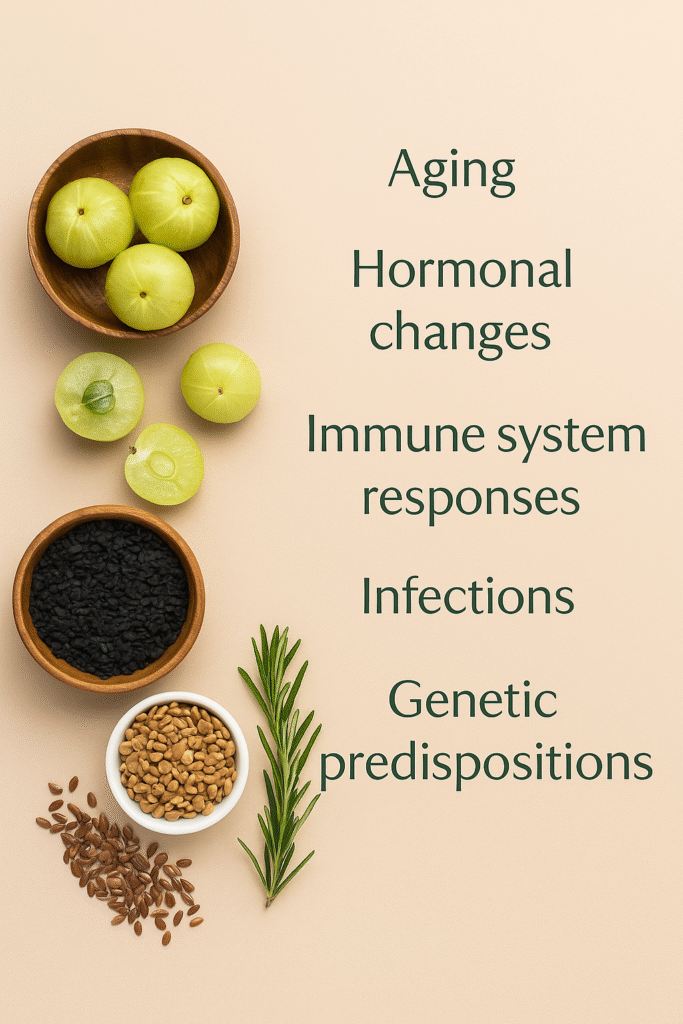Understanding Hair Loss: Causes, Challenges!

Hair loss can have a significant impact on an individual’s self-esteem and emotional well-being. For many, the search for supportive solutions is not just about appearance — it’s about feeling confident and in control of their personal care journey.
While conventional treatments are available, a growing number of individuals turn to time-honoured practices for complementary support. Key herbs 🌿 such as Amla, Kalonji, Fenugreek, Flaxseed, and Rosemary, along with other Ayurvedic botanicals, have been valued for generations in traditional systems of wellness to support hair and scalp health as part of a natural self-care routine.
Research suggests that by the age of 50, approximately 85% of men and nearly 50% of women will experience some form of hair thinning or loss. This can result from a range of contributing factors, including:
- Aging
- Hormonal changes
- Immune system responses
- Infections
- Genetic predispositions
While traditional herbs may be beneficial in maintaining overall scalp and hair wellness, it’s important to note that these natural ingredients are not intended to treat or cure medical conditions such as hair loss due to chemotherapy, certain medications, or trichotillomania (chronic hair pulling).
One of the most common types of hair loss in men is Male Pattern Baldness (MPB), which occurs when a hormone called dihydrotestosterone (DHT) — a byproduct of testosterone — interacts with hair follicles and causes them to shrink. As testosterone levels are typically higher in men, they often experience earlier and more visible hair thinning than women.
